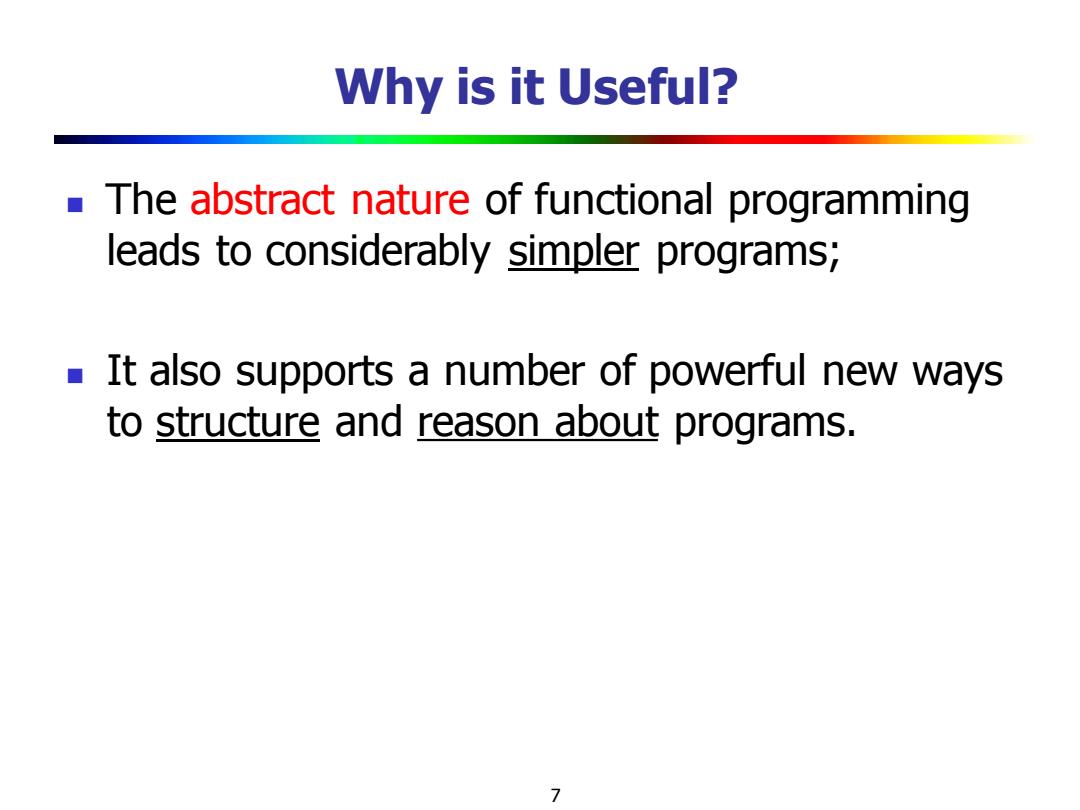
Why is it Useful? The abstract nature of functional programming leads to considerably simpler programs; It also supports a number of powerful new ways to structure and reason about programs. 7
7 Why is it Useful? ◼ The abstract nature of functional programming leads to considerably simpler programs; ◼ It also supports a number of powerful new ways to structure and reason about programs
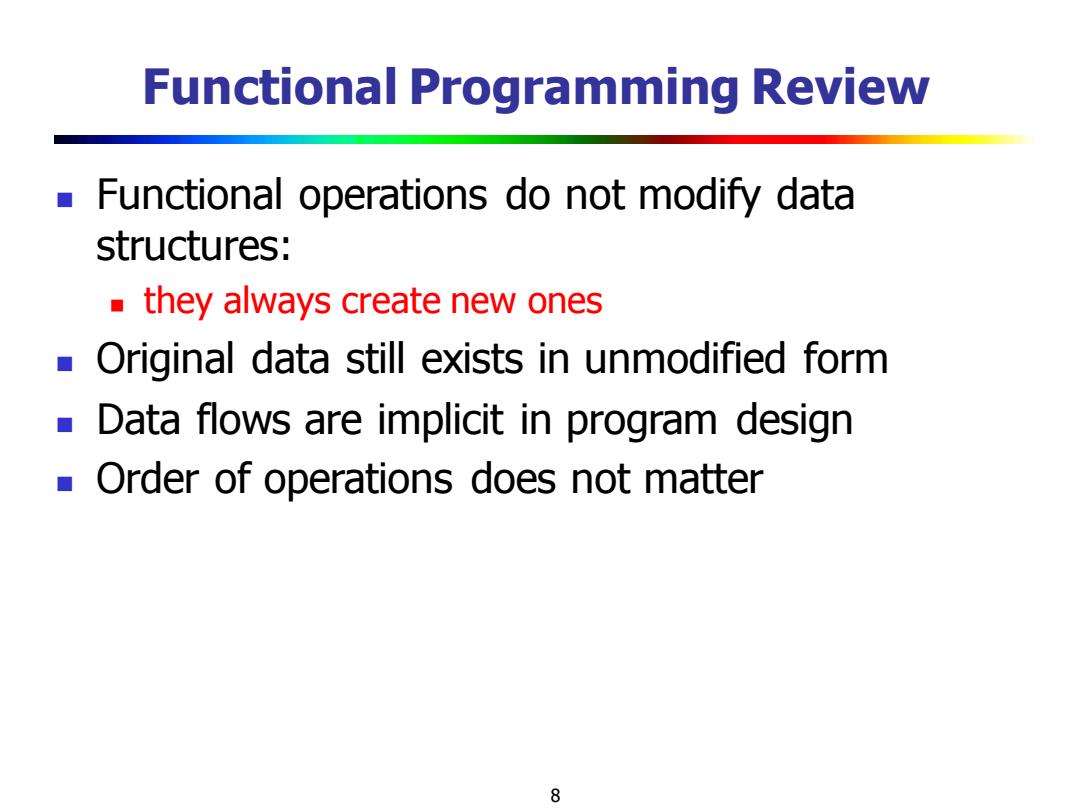
Functional Programming Review Functional operations do not modify data structures: they always create new ones Original data still exists in unmodified form Data flows are implicit in program design Order of operations does not matter 8
8 Functional Programming Review ◼ Functional operations do not modify data structures: ◼ they always create new ones ◼ Original data still exists in unmodified form ◼ Data flows are implicit in program design ◼ Order of operations does not matter
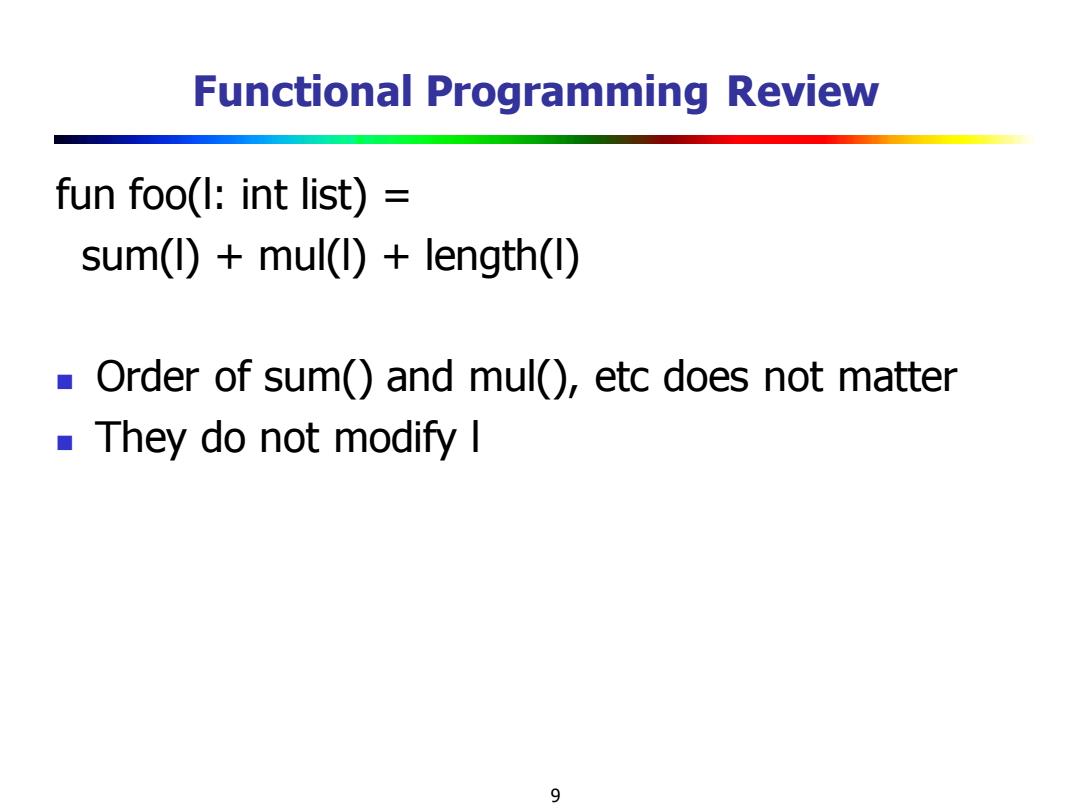
Functional Programming Review fun foo(l:int list)= sum(I)mul(I)length(I) Order of sum()and mul(),etc does not matter They do not modify I 9
9 Functional Programming Review fun foo(l: int list) = sum(l) + mul(l) + length(l) ◼ Order of sum() and mul(), etc does not matter ◼ They do not modify l
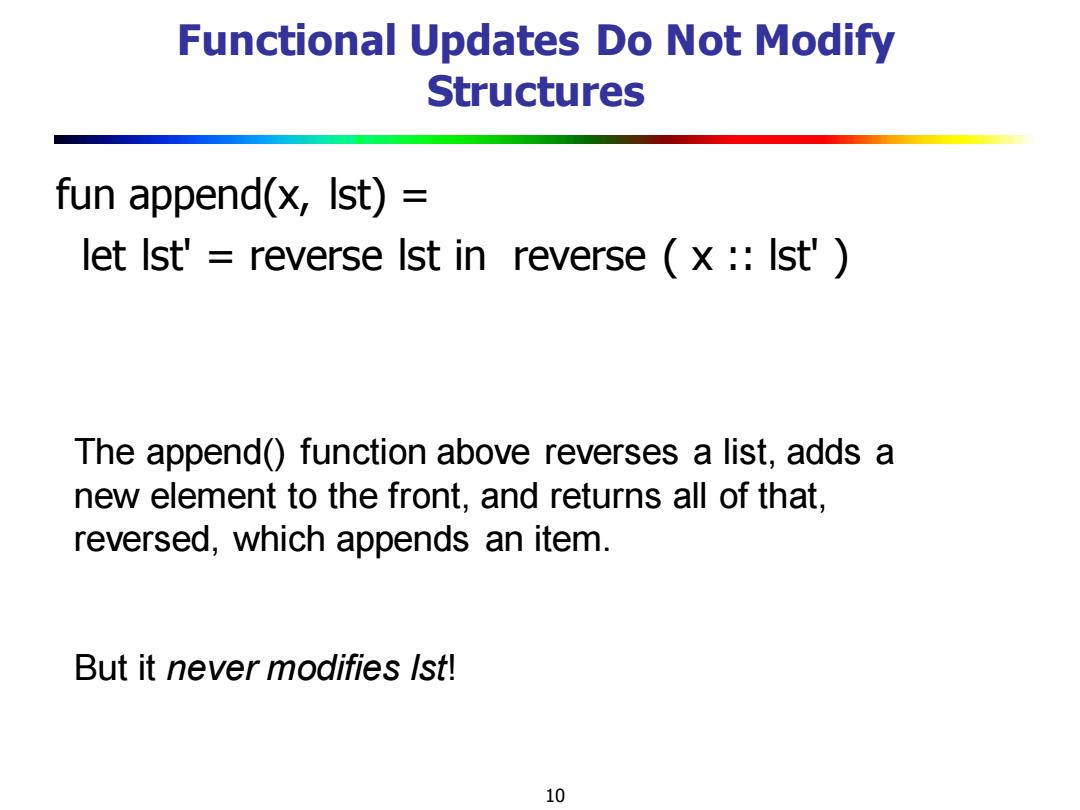
Functional Updates Do Not Modify Structures fun append(x,Ist) = let Ist'reverse Ist in reverse (x Ist') The append()function above reverses a list,adds a new element to the front,and returns all of that, reversed,which appends an item. But it never modifies Ist! 10
10 Functional Updates Do Not Modify Structures fun append(x, lst) = let lst' = reverse lst in reverse ( x :: lst' ) The append() function above reverses a list, adds a new element to the front, and returns all of that, reversed, which appends an item. But it never modifies lst!
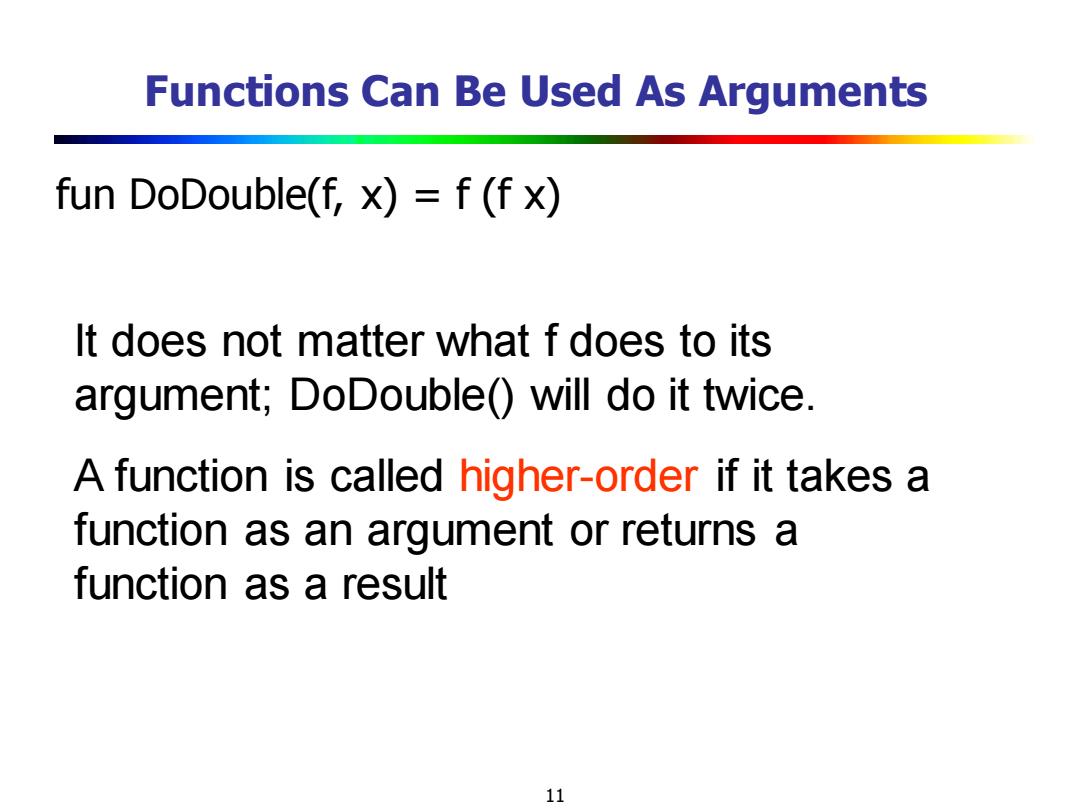
Functions Can Be Used As Arguments fun DoDouble(f,x)=f(f x) It does not matter what f does to its argument;DoDouble()will do it twice. A function is called higher-order if it takes a function as an argument or returns a function as a result 11
11 Functions Can Be Used As Arguments fun DoDouble(f, x) = f (f x) It does not matter what f does to its argument; DoDouble() will do it twice. A function is called higher-order if it takes a function as an argument or returns a function as a result